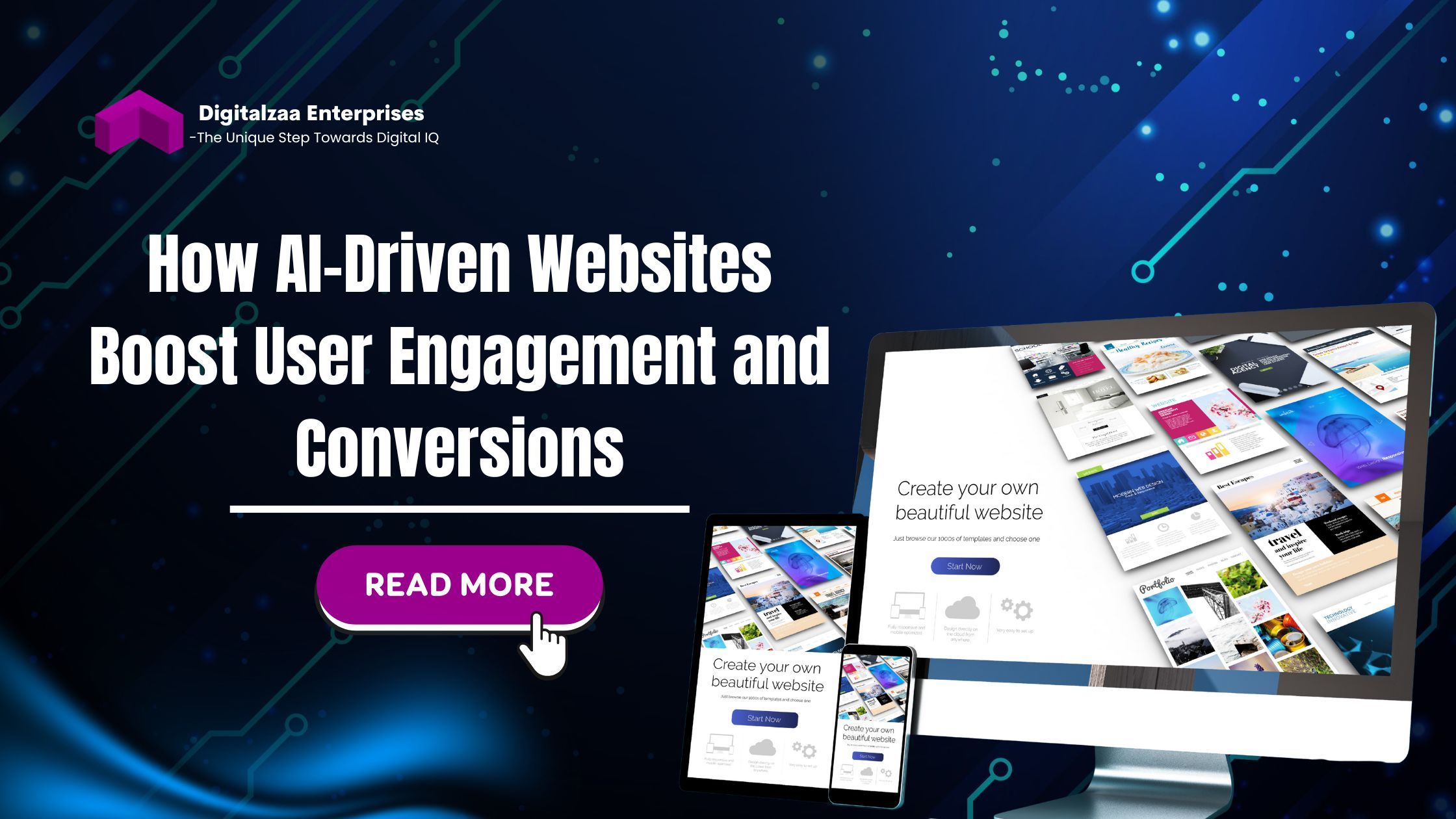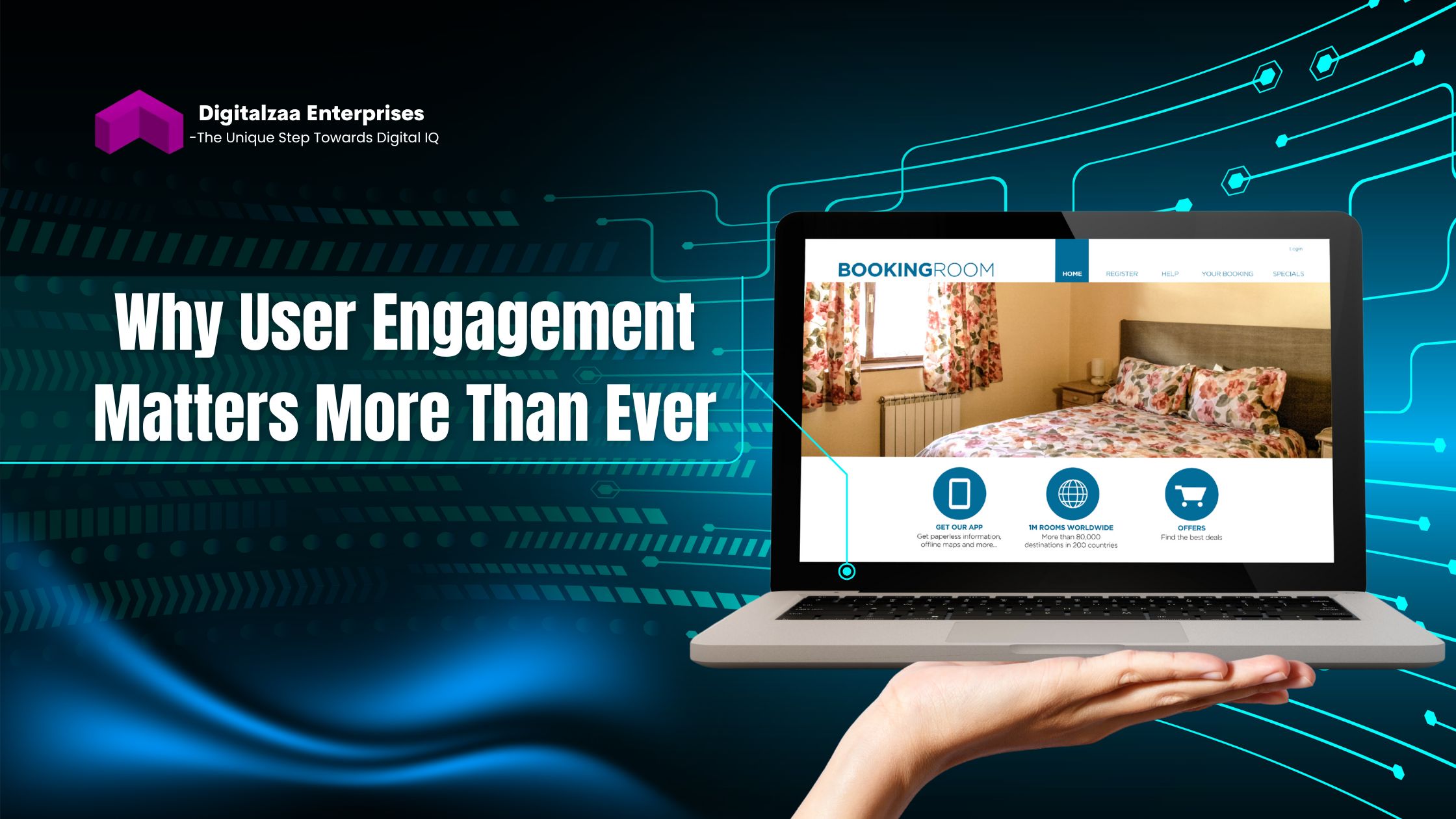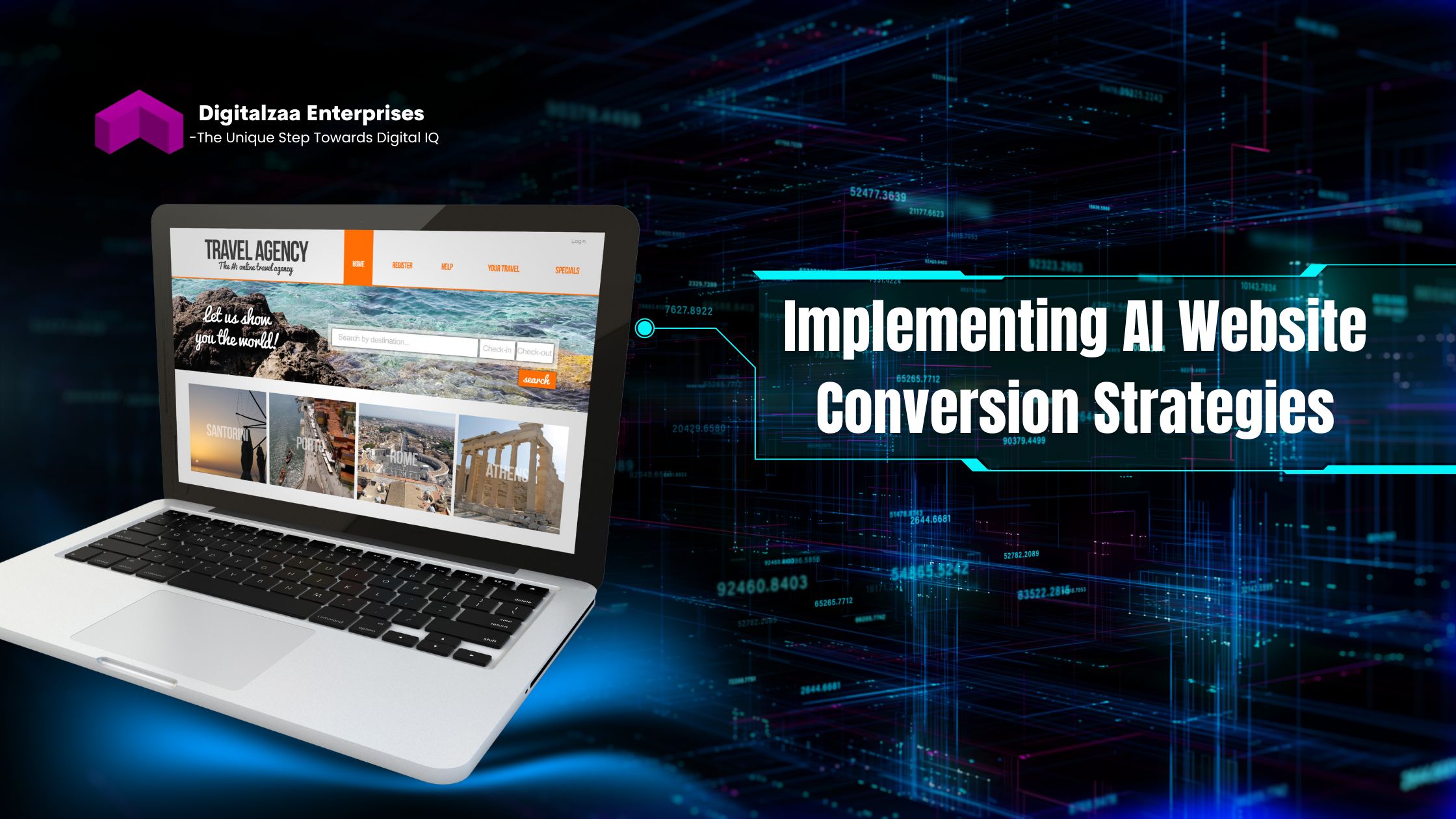How AI-Driven Websites Boost User Engagement and Conversions

In today’s fast-paced digital world, businesses can no longer rely on static websites to engage customers. Visitors expect personalized experiences, real-time interactions, and seamless navigation. This is where AI-driven websites are transforming the online landscape. By leveraging artificial intelligence, websites can deliver tailored content, predict user behavior, and optimize the customer journey—ultimately driving higher engagement and conversions.
In this blog, we’ll explore how AI-powered web solutions are revolutionizing user experience, why businesses should invest in them, and the specific ways they boost conversions. We’ll also cover real-world examples, future trends, and actionable strategies you can adopt.
Understanding the Role of AI in Modern Websites
Artificial Intelligence is no longer a futuristic concept—it’s already reshaping industries. From chatbots to predictive analytics, AI is helping brands interact with users in smarter, faster, and more personalized ways.
An AI-driven website goes beyond simple coding or automation. It continuously learns from user interactions, collects insights from behavioral data, and adapts to meet individual user needs. With tools like machine learning, natural language processing, and predictive modeling, AI ensures visitors get exactly what they’re looking for.
In essence, AI-powered web solutions are designed not only to attract users but also to keep them engaged and guide them toward conversion.
Why User Engagement Matters More Than Ever

User engagement is the backbone of online success. High engagement leads to:
- Lower bounce rates – Users spend more time exploring.
- Improved brand loyalty – Personalized experiences make customers return.
- Increased conversions – Visitors are more likely to take action when the website meets their needs.
Without engagement, even the most beautifully designed websites fall flat. This is where AI for user engagement comes into play, offering intelligent personalization and optimization.
How AI-Driven Websites Enhance User Engagement
- Personalized Content Recommendations: One of the most powerful benefits of AI is its ability to deliver customized content. AI systems analyze user history, search patterns, and preferences to recommend blogs, products, or services tailored to individual visitors.
For example, e-commerce giants like Amazon thrive because their websites recommend items that align with user behavior. This keeps visitors browsing longer, boosting engagement and sales.
- Intelligent Chatbots and Virtual Assistants: AI chatbots have evolved far beyond generic scripted answers. Today’s virtual assistants can understand natural language, answer complex queries, and provide personalized recommendations instantly.
A user visiting your website at midnight no longer has to wait for office hours to get answers—chatbots provide 24/7 support, improving satisfaction and retention.
- Predictive Search and Navigation: Typing a query into a search bar is now smarter with AI. Predictive search anticipates what the user is looking for, offering suggestions that make navigation seamless.
For content-heavy or e-commerce sites, this means less frustration and faster results, which directly impacts engagement and user experience.
- Real-Time User Behavior Tracking: AI algorithms track every click, scroll, and interaction. This data helps websites adjust layouts, content, or offers in real-time. For example, if a visitor lingers on a product page, AI might trigger a discount popup or suggest related products—encouraging conversions.
- Adaptive Design and Dynamic Layouts: Unlike traditional static websites, AI-driven websites can change design elements based on the visitor’s preferences. For instance, an AI-powered fashion website may prioritize women’s clothing for female visitors and men’s clothing for male visitors.
This level of customization makes the user feel understood, enhancing engagement.
How AI-Driven Websites Improve Conversions
While engagement is crucial, the ultimate goal of businesses is conversion—whether it’s filling out a form, subscribing to a newsletter, or making a purchase. Here’s how AI website conversion strategies work:
- Smarter Lead Scoring: AI tools analyze visitor behavior to identify high-quality leads. For example, if a visitor reads multiple blog posts and downloads a whitepaper, the system flags them as a potential lead. This ensures sales teams prioritize prospects who are more likely to convert.
- Personalized Email Marketing: AI integrates with websites to deliver personalized follow-up emails. If a customer abandons their cart, AI can send a customized reminder email with a discount code. This strategy significantly increases conversion rates.
- AI-Powered A/B Testing: Instead of manually running A/B tests, AI automates the process. It quickly determines which version of a page, headline, or call-to-action works best, ensuring optimized conversions without guesswork.
- Predictive Analytics for Customer Behavior: AI systems can forecast which users are most likely to buy, unsubscribe, or bounce. This predictive insight allows businesses to implement proactive strategies—like offering limited-time discounts to hesitant buyers.
- Dynamic Pricing and Offers: AI-driven websites can adjust prices in real-time based on demand, user behavior, or competitor data. Airlines and hotel booking sites already use this tactic to maximize conversions.
Real-World Examples of AI-Driven Websites
- Netflix – Uses AI to recommend shows and movies, keeping viewers engaged for hours.
- Amazon – Masters personalized shopping with product suggestions and dynamic pricing.
- Spotify – Curates playlists using AI algorithms to keep users returning daily.
- Sephora – Offers AI-powered chatbots and virtual try-ons, driving higher sales.
These examples prove how AI-powered web solutions can transform industries by blending personalization with convenience.
Benefits of AI for User Engagement and Conversions
- Higher Customer Satisfaction – Personalized experiences reduce frustration.
- Faster Decision-Making – Predictive analytics guide users to what they need.
- Improved Retention Rates – Engaged users return more often.
- Increased Sales – Conversion-focused strategies maximize revenue.
- Scalable Solutions – AI systems can handle millions of visitors without compromising performance.
Future Trends in AI-Powered Web Solutions
AI is evolving rapidly, and the future looks even more promising:
- Voice-Activated Websites – Integration with voice assistants like Alexa and Siri.
- Hyper-Personalization – Beyond demographics, AI will tailor content to emotions and real-time context.
- Augmented Reality (AR) Shopping – Virtual try-on experiences powered by AI.
- Smarter Security – AI will prevent fraud and cyberattacks while maintaining seamless UX.
Businesses that adopt these trends early will have a competitive edge.
Implementing AI Website Conversion Strategies

To successfully build an AI-driven website, follow these steps:
- Integrate Chatbots – Start with customer support automation.
- Leverage Analytics Tools – Use AI to track behavior and predict outcomes.
- Invest in Personalization – Deliver custom recommendations based on data.
- Run AI-Based A/B Testing – Continuously optimize user journeys.
- Adopt Dynamic Pricing Models – Especially for e-commerce platforms.
Even small steps, like adding predictive search or AI chatbots, can make a big difference in engagement and conversions.
Conclusion
In the digital-first era, businesses cannot afford to rely on traditional websites. AI-driven websites offer a powerful way to engage users, personalize experiences, and guide them toward meaningful actions. By integrating AI-powered web solutions, companies can significantly improve customer satisfaction, boost engagement, and increase conversions.
With the right AI for user engagement strategies and AI website conversion strategies, brands can stay ahead of competitors while delivering value-driven digital experiences.
The future of websites is not just being online—it’s about being intelligent, adaptive, and customer-centric. Businesses that embrace AI today will be the ones leading tomorrow.


